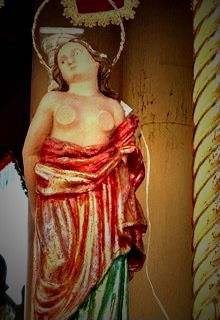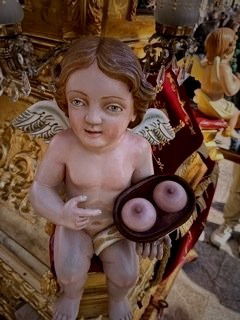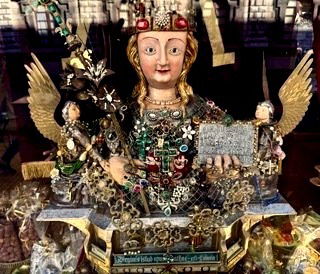Catania: The Legend of Saint Agatha of Sicily
Sicily is a place where legends and tales seem to float around everywhere, making the air crackle with magic. And me? I'm all about diving into these stories, trying to make sense of them even though I'm not from Sicily.
So, I had this big plan to visit Catania right before The Feast of St. Agatha kicked off. But, of course, my plans got all messed up, and I ended up stuck in Istanbul for a day. Eventually, though, I made it to Catania right smack amid all the wild festivities. Picture me, with all my possessions on my back, elbowing my way through the crowds, lining the streets, trying to soak in every bit of the buzz from the four-day-long feast. And right in the middle of all this excitement, the story of Agatha really got under my skin—the tale of Saint Agatha.
The devotion I've seen in Catania to St. Agatha from everyday modern people makes you wonder if it's history or just a fable?
Agatha? Who was she, and why does she matter? Let me break it down for you. She was something else, strong, with an unstoppable faith. Agatha was born way back in 231 in Sicily, and even as a kid, she was all about God. As a teenager, she took things up a notch, becoming a consecrated virgin, which is just a fancy way of saying she devoted herself entirely to Jesus and the Church.
But her looks caught the eye of all sorts, including this shady character, Judge Quintianus, who had his eyes on her family's riches. He thought he could force her into marriage, but Agatha wasn't having any of it. So, what did Quintianus do? He summand her in front of a judge (He was the judge). He then pulled out all the stops, tossing her first into a brothel and then into jail, where he put her through unimaginable torture. I'm talking about cutting off her breasts, for crying out loud. How brutal can you get? Apparently, Agatha's response was a cry to him that was something like, "Cruel man, have you forgotten your mother and the breast that nourished you that you dare to mutilate me this way?"
Despite all the torture, Agatha's spirit couldn't be broken. Legend has it that Saint Peter himself showed up in her cell, healing her wounds. Undeterred, Quintianus, consumed by defeat and malice, resolved to burn her alive on hot coals. However, just as he started his sinister plan, a powerful earthquake struck the area, forcing him to flee to safety. Agatha succumbed to the flames and passed away hours later in her cell, but her legacy endured, with folks believing her veil, which did not burn, could work miracles. Now, every February 5th, the day she died, people in Catania remember her, celebrating her unwavering faith and strength. They even believe that parading Saint Agatha’s veil around town has saved them from all sorts of disasters, from volcanic eruptions to plagues. Talk about a guardian angel, right?





